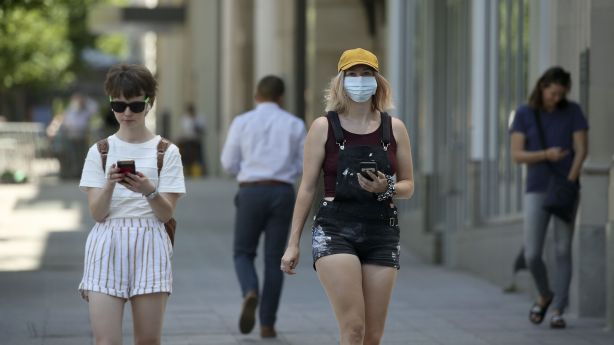PROVO — After countless hours buried in research not necessarily related to their specialty, a group of researchers from Brigham Young University feel like they have made sense for the wearing masks or cloth face coverings to halt the spread of COVID-19.
Ben Abbott, an assistant professor of environmental science at BYU, was one of four researchers at the university who pored through 130 scientific papers about the costs, benefits and disadvantages of mask-wearing in response to the global pandemic.
If the group — which also includes Mitchell Greenhalgh and Isaac St. Clair from environmental science, and Jonas Bush from genetics, genomics and biotechnology — doesn’t sound like one that might typically deliver a cost-benefit analysis of mask-wearing, it’s because it isn’t.
“My research team and I basically suspended our other efforts and worked night and day,” Abbott told KSL NewsRadio on Monday afternoon, adding that the group responded to several inquiries on Facebook and in the Utah County community by digging into previously published scientific papers, devoid of political arguments.
The research analysis wasn’t driven by the university or a department, or even a need for political discourse. Just pure scientific inquisition, Abbott said.
“Our whole purpose for making this report was to bring the pure science,” Abbott told KSL TV. “We’re able to now say with a high level of confidence: ‘masks protect people from COVID-19.’”
All masks, including something as simple as a cloth face covering, have been shown to slow the spread of viruses like COVID-19 — which spread via tiny air droplets when speaking, coughing, sneezing and even breathing — by as much as 90%, the research confirmed.
What’s more, there is no evidence that masks adversely affect the majority of the population, Abbott added, including limiting oxygen intake, increasing carbon dioxide intact or inhaling more pathogens.
“We found zero evidence in the

